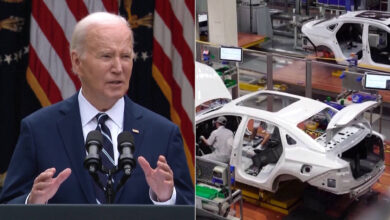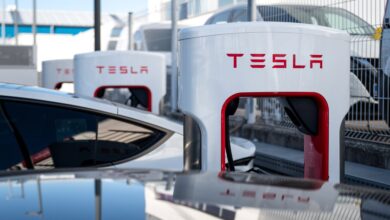What’s eating EV grapes? As sales sprint jogs down, brands do a rethink

The meteoric growth in EV sales in key markets is tapering and even as enthusiastic early buyers are making way for more pragmatic customers, what doe
…
- The meteoric growth in EV sales in key markets is tapering and even as enthusiastic early buyers are making way for more pragmatic customers, what does the future hold?
The rise in electric vehicle (EV) sales the world over has started to witness a dip, prompting many brands to press the rethink button. While the past few years witnessed meteoric rise of electric cars in particular, prompting brands like Tesla and BYD leaving behind traditional automotive companies, the path ahead may be filled with more challenges than opportunities. But what’s changed and how is this change affecting the global automotive landscape?
The steady rise in EV sales in developed markets of the west as well as in China was primarily fuelled by two factors – early adopters and conducive support from governments. While many bought EVs for environmental reasons – EVs release no emissions even if the manufacturing process itself is fraught with concerns for the planet, many more bought it because of factors ranging from low running cost, minimal maintenance requirements, image markup of being in a clean vehicle and lucrative deals. But while several governments continue to put weight behind EV adoption, the initial rush has subsided. Tata Motors’ CFO P B Balaji recently pointed to this during an interview to news agency PTI. “We are also clear that the phase of the early majority wanting to come in on an enthusiastic mode is probably getting over,” he had been quoted as saying.
Also Read : Early enthusiastic EV adoption phase possibly over, says Tata Motors CFO
So the crop of early and enthusiastic EV buyers are now making possibly making way for more pragmatic buyers who would likely wait and watch rather than rush and ride.
Act 2: EVs are hot but not quite sizzling
EVs would look at 2021 and 2022 as watershed years as a rush in sales set off a wave of investments from established and many new brands across the world. Sales touched record highs in 2023. According to the International Energy Agency (IEA), there were around 14 million new EVs registered globally with sales rising by 35 per cent over 2022 and electric cars accounting for 18 per cent of all cars sold in 2023. Interestingly, IEA says 250,000 EVs were registered every week in 2023 and this is more than the total EVs sold in the year 2013.
EVs were sizzling till as recently as last year. So what has changed? Experts say EVs are not novelty any longer and are now entering the long-game phase. According to a NYT report, what’s currently underway is that all sales rise predictions may have been based on the solitary factor of momentum. But if the momentum slows, these predictions are going to take an obvious hit. It is now firmly about cost of acquisition and affordability in the long run. EVs are still hot, just not crackling.
EVs aren’t rocket journeys, but rollercoaster rides
The recent dip in sales momentum of EVs has pushed many brands to have a rethink in their previously much-touted plans of battery power. Ford has seen sales dip by 11 per cent and has asked its suppliers to cut costs. Mercedes has reportedly halted development of its MB.EA Large platform amid poor EV sales. And Tesla is going through tumultuous times – announcing job cuts galore, ushering in price cuts and leaving CEO Elon Musk to even rush to China, the world’s largest EV market.
But even though critics of EVs claim such vehicles were – and are – a fad, experts believe otherwise. Some even say the EV ride was never going to be a rocket-like journey but instead, a roller-coaster ride with a fair degree of ups and downs. Factors like high interest costs, fierce competition and slow-moving public polcies are likely to remain in the forseeable future. But the peak of EV models in global markets is predicted for 2027 and that may well be when the real fertile ground can be farmed.
First Published Date: 21 May 2024, 09:45 AM IST



